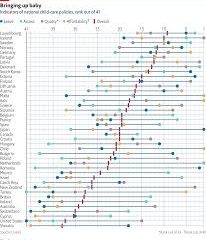Understanding ONET: The Occupational Information Network

Introduction to ONET
The Occupational Information Network (ONET) is a cornerstone resource in the realm of workforce development, providing detailed information about various careers in the United States. As industries evolve, the relevance of accurate and comprehensive occupational data grows, making ONET an essential tool for educators, job seekers, and employers alike.
What is ONET?
ONET is an initiative developed by the U.S. Department of Labor, providing a rich database of descriptions for over 1,000 occupations. This resource includes vital information such as the skills required for each job, necessary education levels, and projected job growth, equipping users with the knowledge they need to make informed career decisions. With continuous updates, ONET reflects current labour market trends and is frequently used in career counselling and educational programming.
Key Features of ONET
One of the standout features of ONET is its extensive database, which categorizes occupations into various groups based on similarities in work activities and skills. It includes detailed descriptors such as:
- Job tasks and responsibilities
- Skills and abilities
- Tools and technologies used
- Wages and employment trends
- Educational requirements
This comprehensive approach allows users to explore careers not only by title but also by competencies, enabling them to consider alternative job paths and understand the skills transferable to different professions.
Current Relevance and Events
As of 2023, ONET continues to play a significant role in the post-pandemic recovery effort, particularly as many industries face shifts in workforce demands. Recent studies have shown that individuals who utilise ONET to guide their career planning are better equipped to navigate job transitions and upskilling opportunities. Many educational institutions and workforce development programs are incorporating ONET data into their curriculums, ensuring students are aligned with the skills in demand by employers.
Conclusion
The importance of ONET cannot be overstated, especially as the workforce landscape continues to change rapidly. By providing accessible and relevant career information, ONET helps individuals prepare for the future and supports industries in finding skilled labour. As we look ahead, the insights gained from ONET will be crucial in tackling the challenges presented by new technologies and shifting economic conditions, reinforcing its status as an essential tool for career planning and development.









